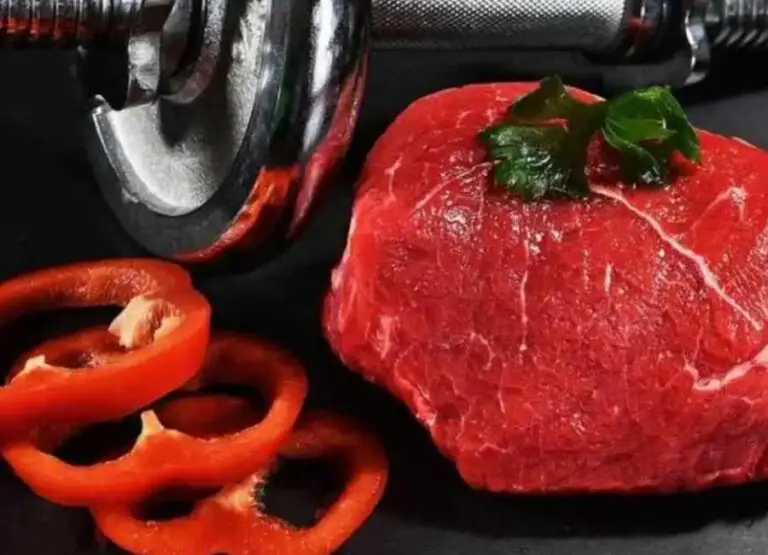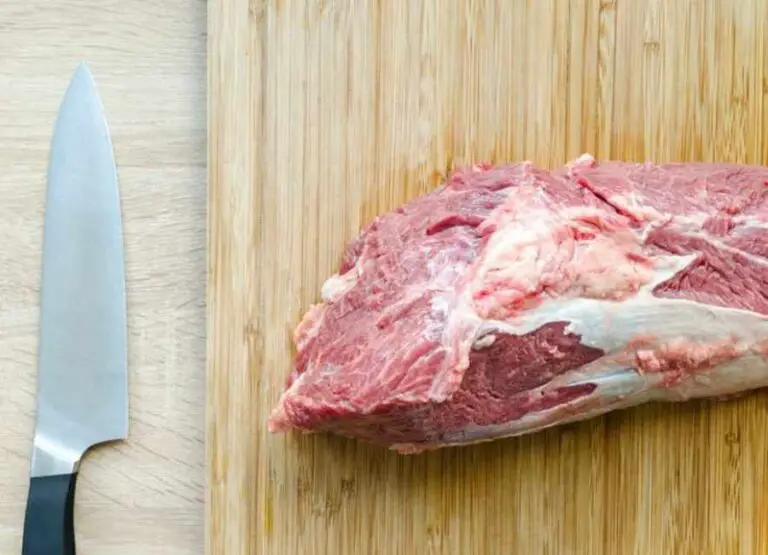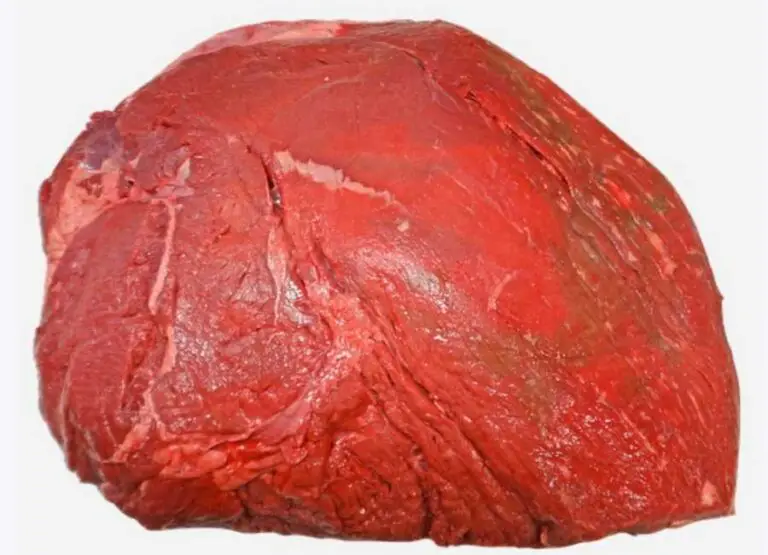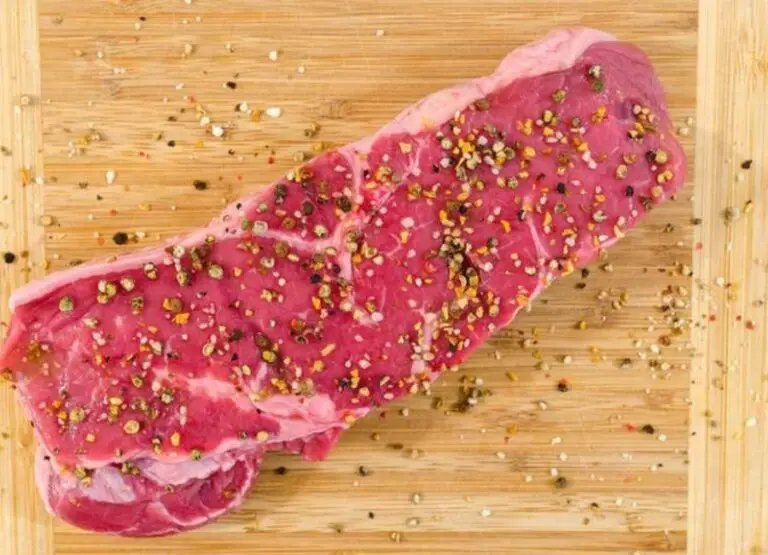Why Does Red Meat Give Me Diarrhea [Explained]
In many people’s diets, red meat is a mainstay and is seen as a great source of protein, iron, and other necessary elements.
Red meat consumption, however, can sometimes cause unpleasant gastrointestinal problems, such as diarrhea.
In this article, we’ll examine the causes of red meat-related diarrhea, as well as some preventative measures.
This article will provide you with important tips on how to consume red meat without having digestive problems, whether you’re a meat enthusiast or just like the occasional steak.
How red meat is digested in the body
Large proteins, lipids, and carbs in red meat are broken down into smaller, more absorbable parts during digestion in the body.
This procedure starts in the stomach, where the meat is dismantled into smaller bits by digestive acids and enzymes.
The small intestine is where the little bits are subsequently further broken down.
There, pancreatic enzymes and gallbladder bile are utilized to further break down proteins, lipids, and carbs.
The circulation receives the minute particles after they have been absorbed in the small intestine, where they can either be utilized immediately for energy or stored for later.
Why Does Red Meat Give Me Diarrhea
Red meat consumption may cause diarrhea as a result of an allergy.
The Asthma and Allergy Foundation of America warns that a meat allergy may cause loose stools every time you consume even a modest amount of a meal.
A carbohydrate known as Galactose-alpha-1,3-galactose is the source of the allergy (also known as Alpha-gal).
This carbohydrate is present in the flesh of mammals (i.e., red meat).
Red meat allergies can include nausea, vomiting, pains in the stomach, diarrhea, rashes, and even anaphylaxis.
In certain situations, additional dietary components, such as sulfates and other preservatives, might contribute to an allergic response to red meat.
Reasons why red meat might cause diarrhea
Here are some potential reasons why red meat can cause diarrhea:
- Contamination: Undercooked meat infected with Salmonella or E. coli bacteria can result in food poisoning and symptoms including diarrhea.
- Fat content: Red meat frequently contains a lot of fat, which some individuals find difficult to digest and can cause diarrhea.
- Additives and Preservatives: Nitrates, a type of additive and preservative found in red meat, have been linked to gastrointestinal problems, including diarrhea.
- Irritable Bowel Syndrome (IBS): Red meat consumption might make IBS sufferers experience diarrhea.
- Allergic Reaction: Red meat can cause allergic reactions in certain people, which might manifest as symptoms like diarrhea.
- High Purine Content: Red meat has a high purine content, which can cause uric acid to develop. Diarrhea and other digestive issues, including excess uric acid.
- Bacterial Overgrowth: Eating a lot of red meat can result in an overabundance of bacteria in the intestines, which can cause digestive problems including diarrhea.
- Slow Digestion: Red meat can be hard to digest, resulting in diarrhea and other gastrointestinal issues.
- Intestinal Inflammation: Red meat consumption has been connected to higher levels of intestinal inflammation, which can cause diarrhea.
Note: If you experience persistent diarrhea after consuming red meat, it’s best to consult a doctor to rule out any underlying health conditions.
Red meat and increased gut inflammation
According to some research, eating red meat causes more intestinal inflammation.
Red meat is thought to be the cause of this since it contains high quantities of saturated fat and heme iron, both of which can increase oxidative stress and the creation of pro-inflammatory chemicals in the gut.
Additionally, some studies have found that consuming a lot of red meat may encourage the development of certain bacteria in the stomach that might worsen inflammation.
To completely comprehend the connection between eating red meat and intestinal inflammation, additional study is necessary.
Prevention and Treatment of Red Meat-Induced Diarrhea
The prevention and treatment of diarrhea induced by red meat consumption may involve the following:
Prevention:
- Eating well-cooked red meat
- Limiting the amount of red meat in the diet
- Avoiding processed or undercooked red meat
- Eating red meat with fiber-rich foods, such as vegetables.
Treatment:
- Staying hydrated by drinking plenty of fluids
- Taking over-the-counter antidiarrheal medications, such as loperamide
- Eating a BRAT diet (bananas, rice, applesauce, and toast) until symptoms subside
- Avoiding foods that can worsen diarrhea, such as caffeine, alcohol, and high-fat foods.
If the symptoms persist, it’s best to consult a doctor.
How to Reduce the Risk of Red Meat-Induced Diarrhea
Reducing the risk of red meat-induced diarrhea can be accomplished by following a few simple steps.
First, always thoroughly cook red meat to an internal temperature of at least 160 °F (71 °C) to reduce the risk of food poisoning from bacteria or parasites.
Additionally, it is important to avoid consuming high levels of saturated fat or processed meats, as these can slow down digestion and lead to loose stools.
Finally, if you have a known allergy to red meat, it is important to avoid it altogether.
Learn more about red meat and constipation.
Frequently Asked Question
Can the chance of diarrhea after consuming red meat be decreased by particular cooking techniques?
The digestibility of red meat can be affected by cooking techniques. Choosing lean meat cuts and cooking techniques with less fat, including grilling or roasting, can help lower the risk of stomach discomfort.
Can digestive enzymes help prevent diarrhea after consuming red meat?
In certain people, using digestive enzymes can strengthen the digestive system and enhance how well red meat is broken down.
To be sure a supplement regimen is safe and suitable for your particular requirements, it’s crucial to see a healthcare practitioner before beginning.
Learn more about reasons why red meat might be bad for you.
Can diarrhea be caused by consuming too much red meat?
Some people may find it difficult to digest too much red meat, which can result in digestive problems including diarrhea.
The likelihood of stomach pain may be decreased by consuming less red meat and adding other protein sources to your diet.
Is red meat more likely than other types of meat to induce diarrhea?
Red meat might be more difficult to digest for certain people due to its increased fat content when compared to other varieties of meat.
This does not imply, nevertheless, that red meat is more likely than other forms of meat to result in diarrhea.
Individual responses to various food kinds might be very diverse.
Learn more about how much red meat is healthy.
What is the major reason why eating red meat might induce diarrhea?
The primary reason why someone becomes sick after eating red meat might differ from person to person.
Food intolerances, such as those of lactose or gluten, an imbalance of gut flora, and a lack of digestive enzymes are a few typical reasons.
Is having diarrhea after consuming red meat typical?
Although it’s not considered typical, some people may often develop diarrhea after consuming red meat.
It’s crucial to consult a healthcare provider if you frequently get diarrhea after consuming red meat to identify the underlying cause.
Learn more about eating red meat regularly.
Conclusion
In conclusion, a range of factors, such as an intolerance to certain dietary components, unbalanced gut flora, and a deficiency in digestive enzymes, can all contribute to red meat causing diarrhea in some people.
For some people, red meat may be a significant source of nutrients, but it’s vital to pay attention to your body and be aware of how it responds to different meals.
A healthcare provider can help you identify the underlying reason and come up with a personalized treatment plan if consuming red meat causes digestive issues.
You may enjoy red meat without the unpleasantness of diarrhea by customizing your diet and including alternate sources of protein and minerals.
Further Reading…

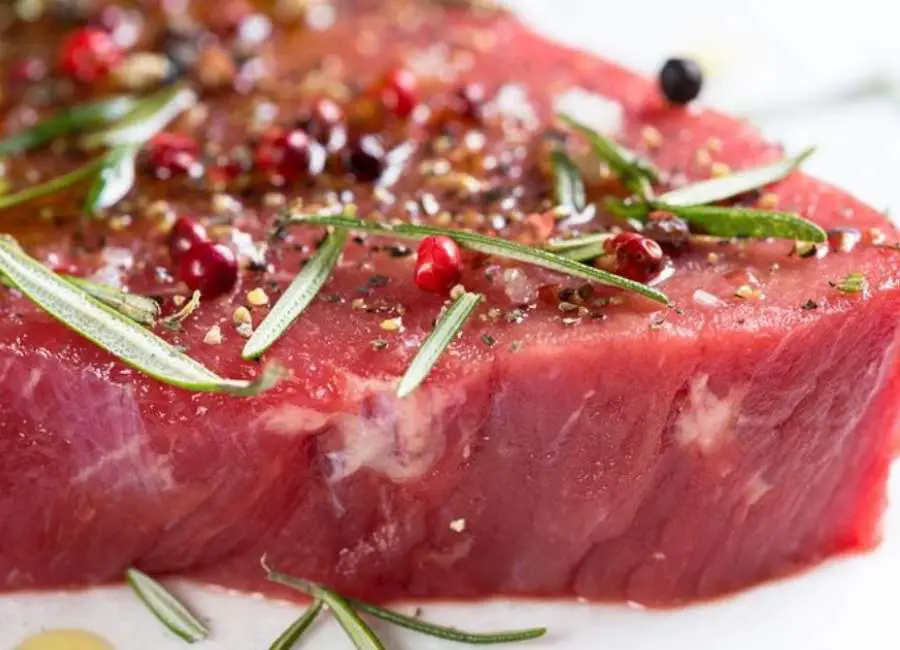
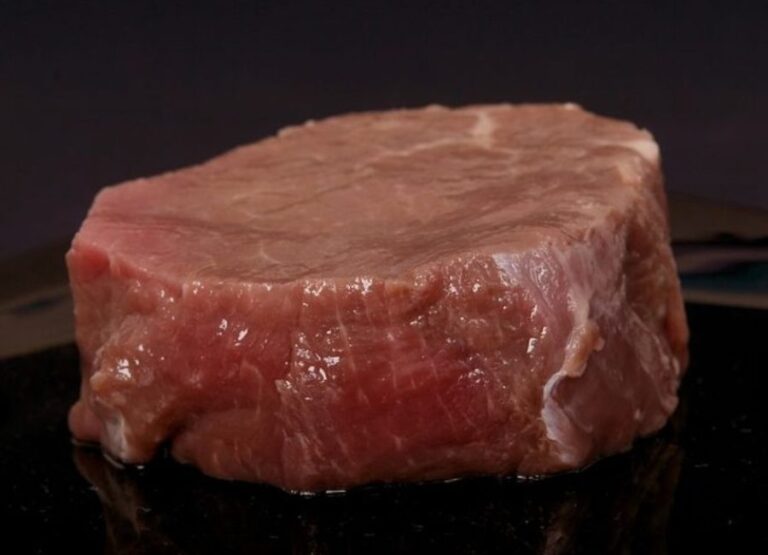
![Is Lean Red Meat Bad For You [Answered]](https://foodcreeks.com/wp-content/uploads/2023/03/Is-Lean-Red-Meat-Bad-For-You-768x555.jpg)
